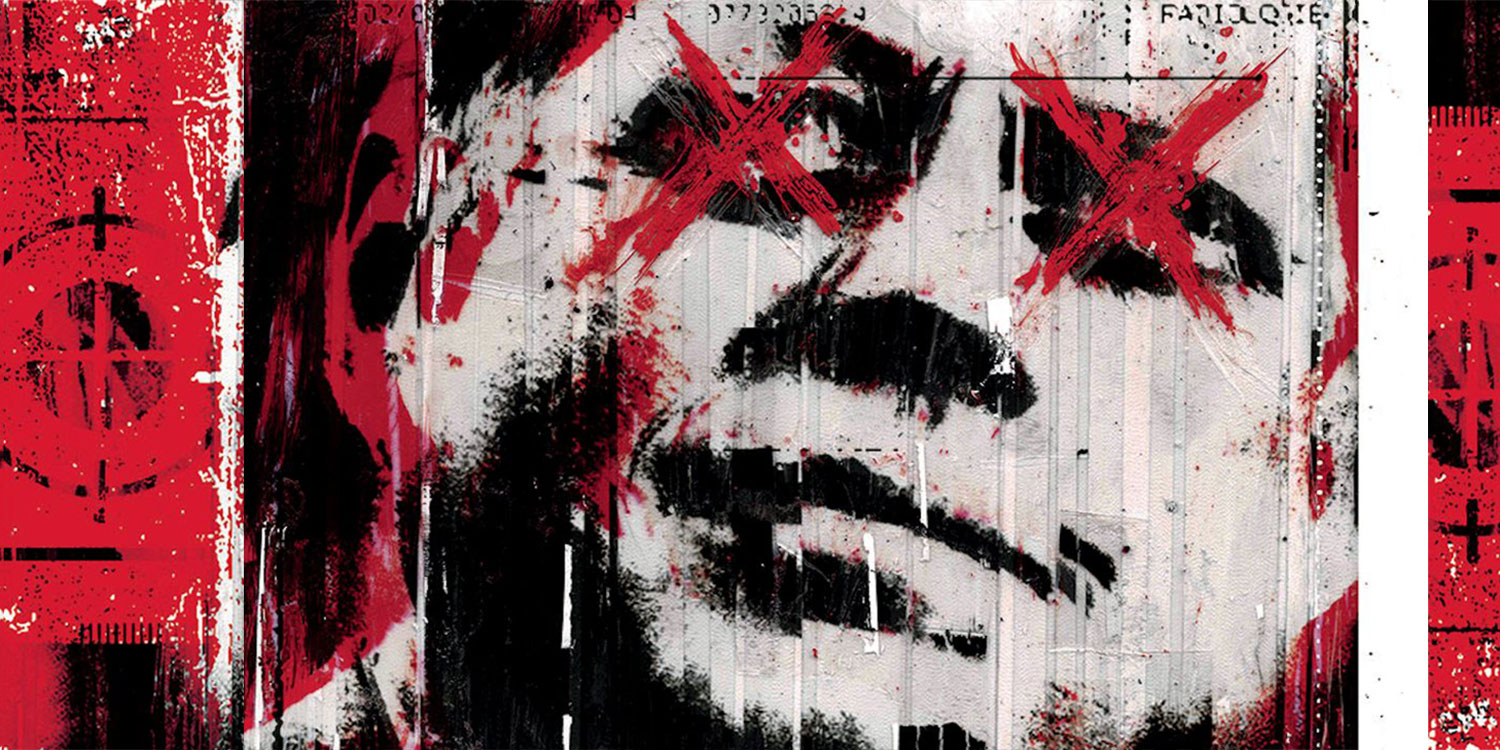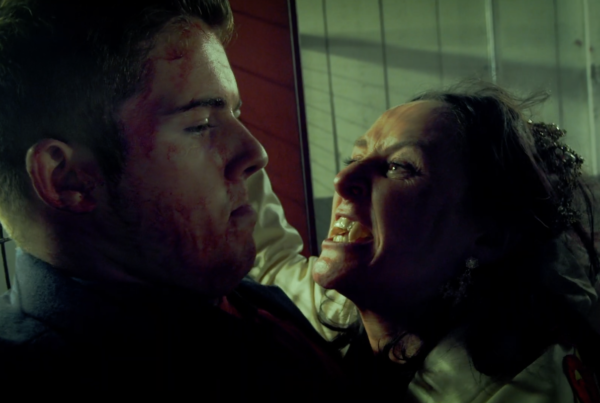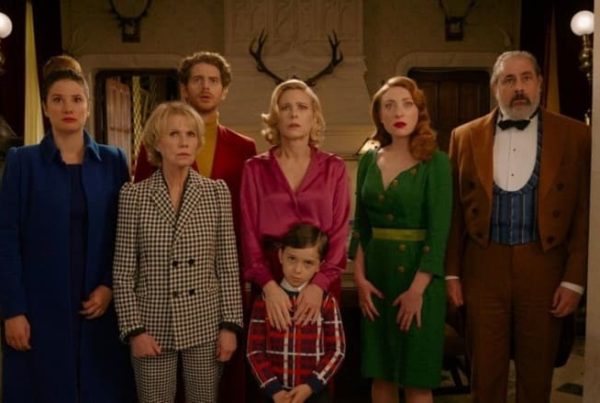It’s increasingly hard to write fiction centered on conspiracies these days. I swear to Christ, they used to be fun. Back in the ’90s it was a blast to watch “Spooky” Fox Mulder pontificate on the secret masters of the world, alien infiltration, government cover ups, UFOs, reptoids, and lord knows what else. In these hyper-connected times, though, when malevolent misinformation can spread around the globe in a nanosecond and thousands of like-minded loons can act in worrying concert, ol’ Spooky is a sinister figure. We know what unchecked conspiratorial woolgathering gets us: unhinged dudes marching into pizza joints with AR-15s. Maybe that’s why the X-Files reboot sucked.
But now here comes writer James Tynion IV (A ton of Batman)and artist Martin Simmonds (Dying is Easy) to take this particular bull by the horns. The Department of Truth is ambitious, provocative, and gutsy, spinning a conspiratorial narrative that is right-up-to-the-second in tune with todays dynamic, fractious, and increasingly tribal culture of fake news and different truths.
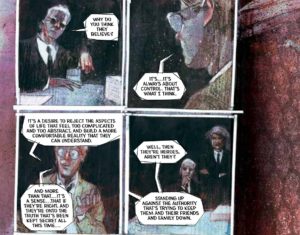
The set up is familiar to anyone who has dipped a toe in this kind of secret history/conspiratorial pool – hell, they used the same starting point in Men in Black. After a seemingly impossible encounter with something completely outside his frame of reference, FBI Agent Cole Turner (in the glasses) is recruited by the titular Department, a wing of the U.S. Government whose remit is keeping a lid on all the tangled conspiracy theories about, well, life the universe and everything.
The wrinkle is that, in the world of the comic, the universe runs on consensus reality; if enough people believe in a thing, that thing becomes real. So if the idea that Stanley Kubrick filmed the 1969 Moon Landing in a secret studio for the G becomes the dominant narrative, then that’s what happened – and moreover, that’s always what happened; reality is rewritten. The Department’s job is to keep all these weird, ahistorical ideas from propagating through the culture, lest our “real” world get switched out for some nonsense where blood drinking reptiles rule the world, or QAnon is remotely plausible (it’s not, and you’re a moron if you think otherwise).
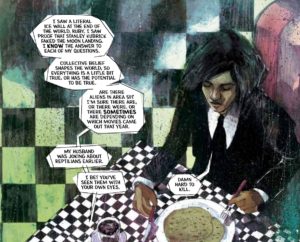
QAnon’s a useful touchstone here, as the the second issue (the first two were provided for review purposes) taps into the old Satanic Panic nonsense of the ’80s, aka the last time a whole bunch of people decided, against all evidence to the contrary, that an evil, global network of child-killers and -rapers were running the show. Which isn’t to say that child trafficking doesn’t exist. It does, but the mechanics of that crime are a far cry from what the QAnon QAzies are peddling, But The Department of Truth is not concerned with the former; it’s the latter, the way insanity is transmitted through modern media and social exchange, that is the series’ remit, with enough horror thrown in to keep your hackles raised for good measure.
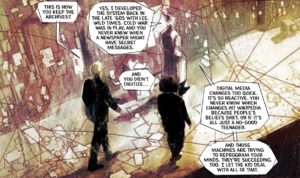
It feels of the moment. We live in an age where the facts that we all used to hold as true are no longer agreed upon, a world where phrases like “crisis actor” have entered the common parlance and anonymous twitter accounts decry every terrorist shooting as a false flag operation. It feels as though the world is shifting beneath our feet, but the people screaming about Agenda 21 on Facebook (as someone literally is while I write this – I’m tempted to screenshot) are not troubled. Rather, their sheer, ferocious certainty that they know who’s really pulling the strings is a kind of fierce comfort.
You know those guys? Hell, you’re probably related to one. The steely glee they clearly feel when they’re Ctrl-Ving their screeds about the Rothschilds/Gates Foundation/George Soros/delete as applicable is terrifying, when you think about it; it’s the unshakable faith of the insane, and the genius of The Department of Truth is the way it posits the notion that if enough of these loons started thinking in concert, they could become, through sheer will, right. And of course, we know that their actors in the world, some of them with Bond villain accents, others with a history of shonky NYC real estate deals, who benefit from that kind of mass delusion. Tynion and Simmonds’ book trucks in fantasy, but it’s thematic concerns are absolutely on point.
With only two issues to go by, the general narrative drift of the series is hard to gauge, but the hook is well and truly in. As long as nobody drops the ball, The Department of Truth shows every sign of being not just a great comic, but an important one.
Order Issue #1 of The Department of Truth here.

